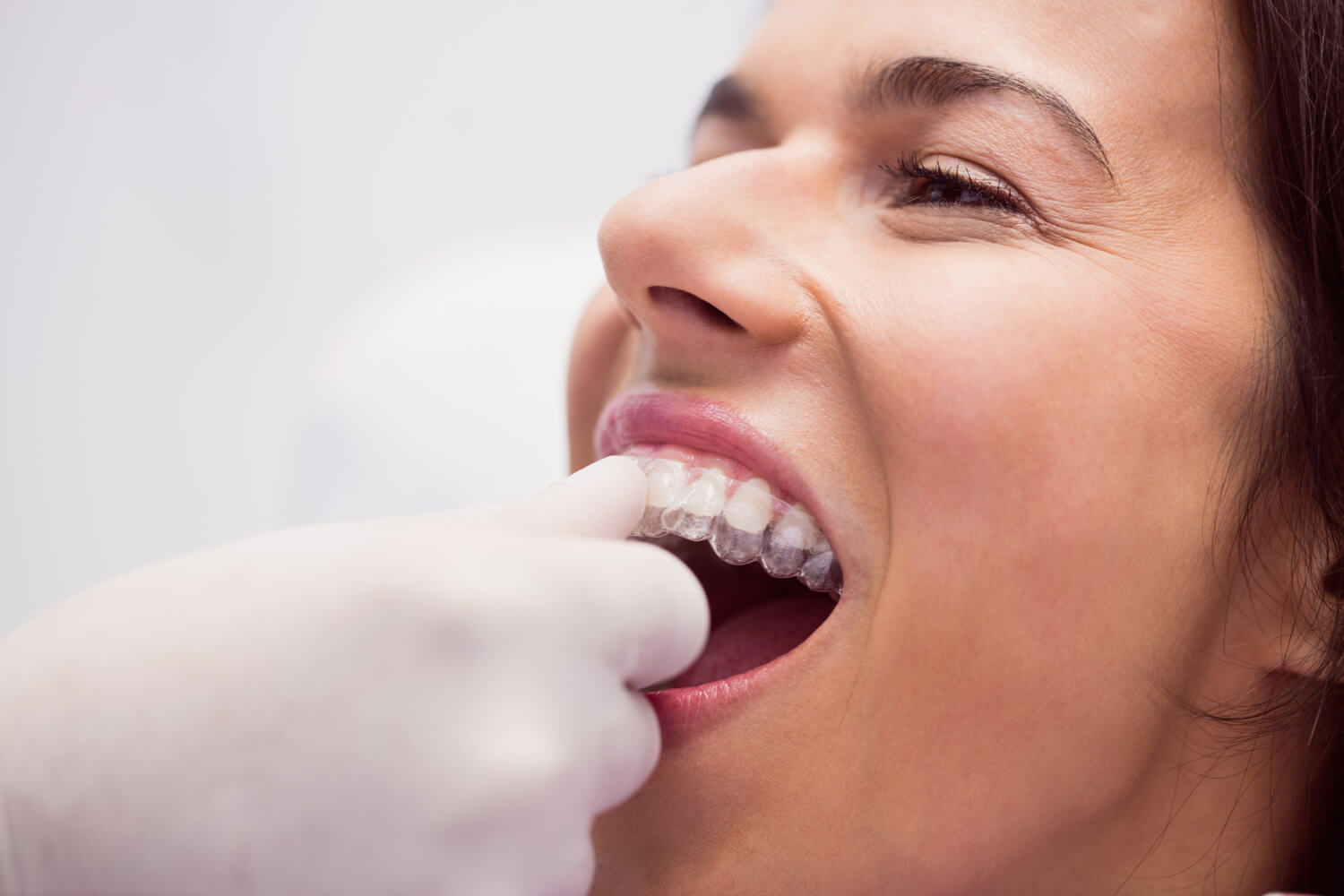When teeth need to be straightened or beautified quickly and gently, veneers are often the right choice. Sometimes a tooth gap, severe discolouration or a broken tooth corner disturbs the overall impression of an otherwise beautiful smile. Veneers are a very good, minimally invasive alternative to dental crowns, bleaching or wearing braces.
Veneers usually last from several years to a decade. Most failures include fractures or chipping followed by leakage or delamination of the veneer. However, please keep in mind that the veneers may need to be replaced several times over time if you get them at a young age.
Can veneers discolour?
Ceramic is insensitive to discolouration. However, the glue joints can discolour over time. However, if the joints are in the invisible area (between the teeth), there are hardly any impairments. Discolouration of the joint is a sign of leakage. This can be easily remedied by the dentist in the early stages.Are veneers a stable solution?
Are veneers a stable solution? We always hear this question. You can do everything with dental implants that you do with natural teeth. Conversely, anything you wouldn't do with your natural teeth, you shouldn't do with veneers either, such as chewing pins or biting on hard objects.When are veneers useful?
- for closing teeth gaps on incisors
- to cover discoloured teeth
- to cover broken corners, incisal edges that have become thin, unsightly fillings or other defects on front teeth
- to compensate for slightly crooked or irregular teeth
- for permanent change in tooth colour
Function
In addition to aesthetic improvements, ceramic veneers can also be used to correct misalignments, gaps, tooth lengths and tooth deformities in the area of the front teeth. Without the extensive preparation required for a full crown and, depending on the type of veneer, in some cases even without local anaesthesia, we can attach this type of "denture" in a way that is gentle on the substance with a special UV adhesive.
Advantages and disadvantages
- Concerning dental aesthetics and dental health, all veneers offer the advantage of a completely metal-free, very compatible and tooth substance-friendly restoration with high durability.
- With the thicker Prep-Veneers, even strong discolorations can be excellently covered. However, you have to accept the disadvantage that you have to sacrifice more tooth substance due to the thickness and that the veneering of the teeth in question is designed to last. Defective veneers must always be replaced.
- Since non-prep veneers are glued directly to the tooth surface, they can be removed without necessarily having to replace. To achieve an even appearance of the rows of teeth, with non-prep veneers, however, a restoration of all front teeth, sometimes also the molars, is necessary, which is associated with correspondingly high costs.
How do you properly care for veneers?
When are veneers not recommended?
Patients who grind heavily, i.e. rub their teeth together at night when they are stressed, have a greatly increased risk of fracture. Here it is often very difficult to make veneers that are not destroyed by the grinding.
In very young patients, growth or tooth displacement can make it necessary for a veneer to be replaced several times for aesthetic reasons. Here it makes sense to bridge the transitional period with plastic superstructures first.
Veneers on the lower jaw - front teeth. If there is extremely little space, they are sometimes difficult to attach.
When there is only a little layer of enamel left on the tooth. The adhesive strength in enamel is many times higher than in dentine. Therefore, the risk of breakage is too high here.
Very badly discoloured teeth: Here the ceramic layer is too thin to cover the colour. If you take a very non-transparent material (opaque), then it looks unnatural. One option is to bleach the tooth beforehand. But it often makes sense to have an all-ceramic crown made here.
Not only many stars and celebrities decide to do this. More and more people who value natural and aesthetic teeth are opting for veneers these days.
Veneers give you a bright white smile even if your teeth are discoloured or crooked. You'll never have to be ashamed of your teeth or consciously hide them again. With veneers, you can finally laugh with all your heart and proudly present your great smile.










 Erika Rhein, the contributing author and the professional blogger by profession. With years of experience, I now focus on writing blogs on varied niches. Being a research enthusiast, I like to provide my readers with the useful and informative articles on the different topics they are looking for. I aim to create a difference through my writing.
Erika Rhein, the contributing author and the professional blogger by profession. With years of experience, I now focus on writing blogs on varied niches. Being a research enthusiast, I like to provide my readers with the useful and informative articles on the different topics they are looking for. I aim to create a difference through my writing.
0 Comments